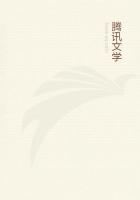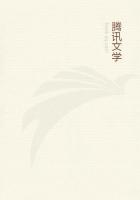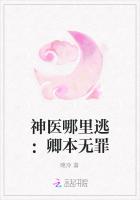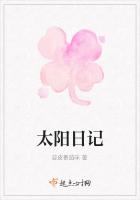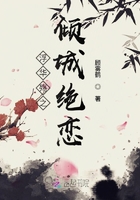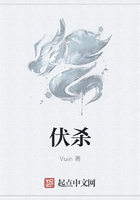Claude Frollo was no longer the ******-minded scholar of the Torchi College,the tender guardian of a little child,the young and dreamy philosopher,who knew many things,but was ignorant of more.He was a priest—austere,grave,morose—having a cure of souls;Monsieur the Archdeacon of Josas;second acolyte to the Bishop;having the charge of the two deaneries of Montlhéry and Chateaufort,and of a hundred and seventy-four rural clergy.He was an imposing and sombre personage,before whom the chorister boys in alb and tunic,the brethren of Saint-Augustine,and the clerics on early morning duty at Notre-Dame,quailed and trembled,when he passed slowly under the high Gothic arches of the choir—stately,deep in thought,with folded arms,and his head bent so low upon his breast that nothing was visible of his face but his high bald forehead.
Dom1 Claude Frollo,however,had abandoned neither science nor the education of his young brother—the two occupations of his life.But in the course of time some bitterness had mingled with these things he once had thought so sweet.With time,says Paul Diacre,even the best bacon turns rancid.Little Jehan Frollo,surnamed'of the Mill'from the place where he had been nursed,had not grown in the direction in which Claude would have wished to train him.The elder brother had counted on a pious pupil,docile,studious,and honourable.But the younger brother,like those young trees which baffle the efforts of the gardener,and turn obstinately towards that side from which they derive most air and sunshine—the younger brother increased and waxed great,and sent forth full and luxuriant branches only on the side of idleness,ignorance,and loose living.He was an unruly little devil,which made Dom Claude knit his brows,but also very droll and very cunning,at which the elder was fain to smile.Claude had consigned him to that same Collége de Torchi in which he himself had passed his earliest years in study and seclusion;and it grieved him sorely that this retreat,once edified by the name of Frollo,should be so scandalized by it now.He would sometimes read Jehan long and stern lectures on the subject,under which the latter bore up courageously—after all,the young rascal's heart was in the right place,as all the comedies declare;but the sermon over,he calmly resumed the evil tenor of his ways.Sometimes it was a béjaune,or yellow-beak,as they called the new-comers at the University—whom he had thoroughly badgered as a welcome—a valuable custom which has been carefully handed down to our day;now he had been the moving spirit of a band of scholars who had thrown themselves in classical fashion on a tavern,quasi classico excitati,then beaten the tavern-keeper'with cudgels of offensive character,'and joyously pillaged the tavern,even to staving in the hogsheads of wine.And the result was a fine report drawn up in Latin,brought by the sub-monitor of the Torchi College to Dom Claude,with piteous mien,the which bore the melancholy marginal remark,Rixa;prima causa vinum optimum potatum.2 Finally,it was said—horrible in a lad of sixteen—that his backslidings frequently extended to the Rue de Glatigny.3
In consequence of all this,Claude—saddened,his faith in human affection shaken—threw himself with frenzied ardour into the arms of science,that sister who at least never laughs at you in derision,and who always repays you,albeit at times in somewhat light coin,for the care you have lavished on her.He became,therefore,more and more erudite,and,as a natural consequence,more and more rigid as a priest,less and less cheerful as a man.In each of us there are certain parallels between our mind,our manners,and our characters which develop in unbroken continuity,and are only shaken by the great cataclysms of life.
Claude Frollo,having in his youth gone over the entire circle of human knowledge,positive,external,and lawful,was under the absolute necessity,unless he was to stop ubi defuit orbis,4 of going farther afield in search of food for the insatiable appetite of his mind.The ancient symbol of the serpent biting its tail is especially appropriate to learning,as Claude Frollo had evidently proved.Many trustworthy persons asserted that,after having exhausted the fas of human knowledge,he had the temerity to penetrate into the nefas,had tasted in succession all the apples of the Tree of Knowledge,and,whether from hunger or disgust,had finished by eating of the forbidden fruit.He had taken his seat by turns,as the reader has seen,at the conferences of the theologians at the Sorbonne,at the disputations of the decretalists near the image of Saint-Martin,at the meetings of the Faculty of Arts near the image of Saint-Hilary,at the confabulations of the physicians near the benitier of Notre-Dame,ad cupam Nostr?-Domin?all the viands,permitted and approved,which those four great kitchens,called the four Faculties,could prepare and set before the intelligence,he had devoured,and satiety had come upon him before his hunger was appeased.Then he had penetrated farther afield,had dug deeper,underneath all that finite,material,limited knowledge;he had risked his soul,and had seated himself at that mystic table of the Alchemists,the Astrologers,the Hermetics of which Averr ,Guillaume de Paris,and Nicolas Flamel occupy one end in the Middle Ages,and which reaches back in the East,under the rays of the seven-branched candlestick,to Solomon,Pythagoras,and Zoroaster.
So,at least,it was supposed,whether rightly or not.
It is certainly true that the Archdeacon frequently visited the cemetery of the Holy Innocents,where,to be sure,his mother and father lay buried with the other victims of the plague of 1466;but he seemed much less devoutly interested in the cross on their grave than in the strange figures covering the tombs of Nicolas Flamel and Claude Pernelle close by.

